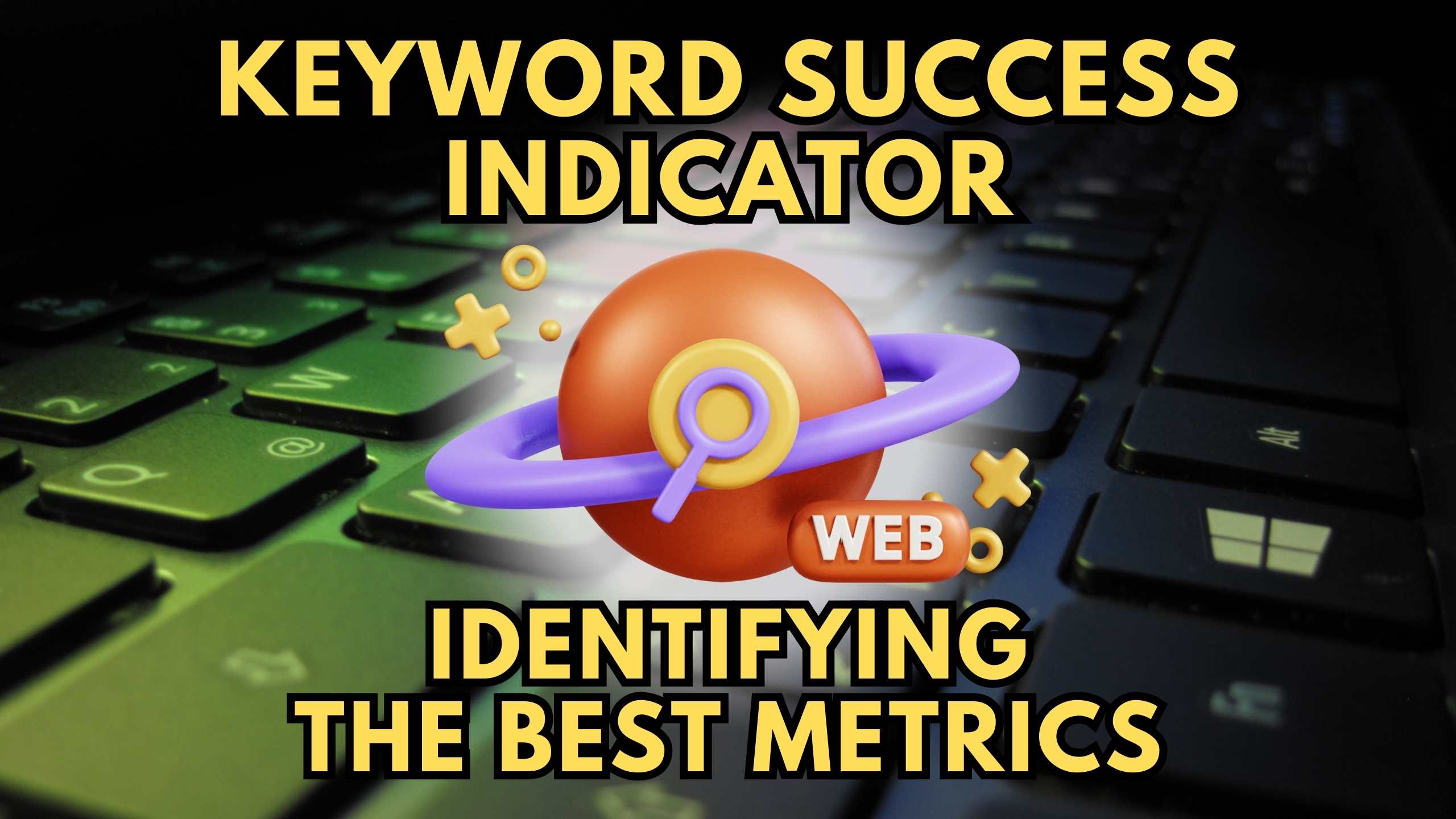Keyword Success Indicator: Identifying the Best Metrics
- Data as a Service (DaaS) Software Marketing & Analytics


Keyword Success Indicator: Identifying the Best Metrics
In the ever-competitive realm of digital marketing, understanding the success of your chosen keywords is vital. The journey to effective keyword selection involves deciphering the metrics that truly matter. This comprehensive guide will explore the various indicators of keyword success, empowering digital marketers with the insights needed for impactful SEO strategies.
The Landscape of Keyword Success Metrics
1. Search Volume:
Search volume remains a fundamental metric in gauging keyword success. Tools such as Google Keyword Planner assist marketers in assessing how often a term is searched. A higher search volume generally indicates a more sought-after keyword, but striking the right balance for your niche is key.
2. Click-Through Rate (CTR):
The Click-Through Rate is a valuable metric that reflects the percentage of users who click on a search result. Platforms like SEMrush provide CTR insights, allowing marketers to understand how well a keyword engages their target audience.
3. Conversion Rate:
Beyond attracting clicks, converting visitors into customers is the ultimate goal. HubSpot is an invaluable tool for tracking conversion rates associated with specific keywords. A high conversion rate indicates that the chosen keywords resonate effectively with your audience.
4. Keyword Difficulty:
Navigating the competitive landscape requires an understanding of keyword difficulty. Ahrefs offers a comprehensive keyword difficulty metric, helping marketers assess the competition level for a particular term. Balancing high-search-volume keywords with manageable difficulty is a strategic approach.
5. Bounce Rate:
A high bounce rate can signal that the keyword may not be aligning with user intent. Google Analytics is an indispensable tool for tracking bounce rates associated with specific keywords. Lower bounce rates indicate that users find relevant content upon clicking, contributing positively to keyword success.
Best Practices in Keyword Selection
- Audience-Centric Approach: Understand your target audience and tailor keywords to align with their preferences and search behavior. Tools like AnswerThePublic provide insights into user queries related to specific keywords, aiding in audience-centric keyword selection.
- Long-Tail Keywords: Incorporate long-tail keywords to capture specific user queries. Long Tail Pro streamlines the process of identifying and optimizing for long-tail keywords, often contributing to higher conversion rates.
- Competitor Analysis: Analyze competitors using tools like SpyFu. Identify successful keywords in your niche and evaluate their performance. This data-driven approach helps in refining your keyword strategy.
- Regular Monitoring and Adaptation: Keyword success is dynamic. Regularly monitor metrics and adapt your strategy. Tools like Moz provide ongoing insights into keyword performance, empowering marketers to stay agile in their approach.
Conclusion
Identifying the best metrics for keyword success requires a holistic approach, considering factors from search volume to conversion rates. Embracing a data-driven mindset and utilizing specialized tools empowers digital marketers to navigate the complexities of keyword selection effectively.
Elevate Your Keyword Strategy with Subscribed.fyi
Ready to optimize your keyword strategy and boost your digital presence? Subscribed.fyi is your go-to platform for insights, comparisons, and management tools to master your SaaS stack. Sign up today to unlock exclusive deals and savings, ensuring you have the tools needed to enhance your keyword success.
Unlock Your Exclusive SaaS Deals with Subscribed.fyi!
Relevant Links:
- Google Keyword Planner
- SEMrush
- HubSpot
- Ahrefs
- Google Analytics
- AnswerThePublic
- Long Tail Pro
- SpyFu
- Moz
- Subscribed.fyi





